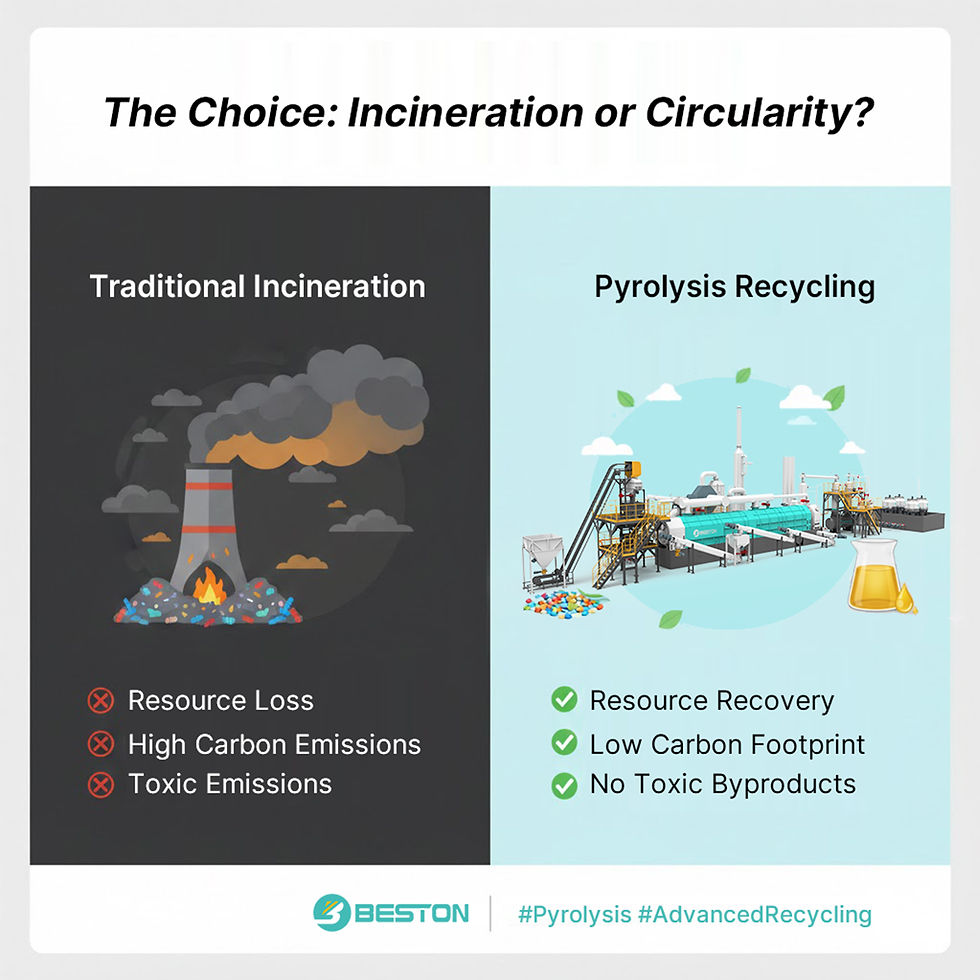Circular Economy in Rice Processing: Charcoal Making Machine Paves the Way for Green Production
- lee784287
- 2025年11月6日
- 讀畢需時 3 分鐘
For rice processing plants, rice husk has long been a frustrating byproduct. Comprising about 20% of the total rice weight, these fluffy husks pile up rapidly—one rice mill can generate tons of them daily. Landfilling is costly and polluting, open burning fails environmental standards, and repurposing as feed or low-grade fuel brings little profit due to high transportation costs. Fortunately, rice husk charcoal making machines have emerged as a transformative solution, turning this waste into wealth while solving operational headaches.

1. Waste Reduction & Space Savings: From Burden to Asset
Rice husk accumulation used to be a major hassle for plants, occupying valuable yard space and posing fire risks due to their lightweight and flammable nature. Traditional disposal methods like stacking or burning never addressed the root problem, leaving plants stuck in a "can’t stack, can’t ship" dilemma.
Rice husk charcoal making machine—especially continuous models—solve this by processing husks efficiently. Modern continuous units operate 24/7 with automated feeding and discharging, turning 8 tons of rice husk into charcoal in just hours compared to a full day with old batch equipment. This eliminates unsightly and hazardous husk piles, freeing up space for production activities and reducing cleaning labor.
2. Profit Boost: Multiple Revenue Streams from Waste
The biggest advantage of these machines lies in their ability to create high-value products from low-cost waste, opening up new income channels for rice processors:
Rice husk charcoal: The primary product has diverse applications—used as biomass fuel (with calorific value comparable to coal), soil amendment for nurseries, or raw material for activated carbon and mosquito coils. For a plant processing 1,000 tons of rice husk annually, this translates to hundreds of tons of marketable charcoal.
Byproducts like wood vinegar: During carbonization, machines can recover wood vinegar (a brown liquid rich in plant nutrients) through simple modification. Extracting 12kg of wood vinegar from 100kg of rice husk adds another profitable product, as it’s in demand for agriculture and horticulture.
Cost savings on energy: Many plants use the produced charcoal to replace coal for boiler heating. One facility reported saving over $3,000 annually by substituting coal with rice husk charcoal for heating 7,000㎡ of space, cutting fuel expenses significantly.
3. Environmental Compliance: Meet Green Production Standards
With stricter environmental regulations worldwide, rice processing plants face pressure to reduce pollution. Traditional husk disposal methods like open burning release black smoke and harmful emissions, risking fines and operational shutdowns.
Rice husk charcoal making machines address this with sealed, eco-friendly designs:
Sealed carbonization chambers prevent smoke and odor leakage, keeping dust emissions well below regulatory limits.
Heat recovery systems recycle waste heat from the process to preheat raw materials, reducing energy consumption by 30% compared to conventional equipment.
By converting husks into reusable products, they minimize landfill waste and lower the plant’s carbon footprint, aligning with circular economy goals and enhancing brand reputation.
4. Versatility & Scalability: Adapt to Different Needs
Modern rice husk charcoal making machines are highly versatile—they can process not just rice husk but also wood chips, straw, palm shells, and other agricultural wastes. This flexibility lets plants diversify their raw material sources if husk supply fluctuates.
They also cater to various production scales, with models handling 500kg to 10 tons of husk per hour. Whether you’re a small mill or a large-scale processor, there’s a machine that fits your output, making it a scalable investment that grows with your business.
A Worthwhile Investment for Long-Term Success
For rice processing plants looking to improve sustainability, cut costs, and boost profits, a rice husk charcoal making machine is more than just equipment—it’s a strategic investment. It solves the age-old problem of rice husk disposal while turning waste into a reliable revenue stream, all while keeping operations compliant with environmental rules.
As the demand for eco-friendly products and circular economy practices grows, adopting this technology not only improves your bottom line but also positions your plant for long-term competitiveness in the industry.



留言